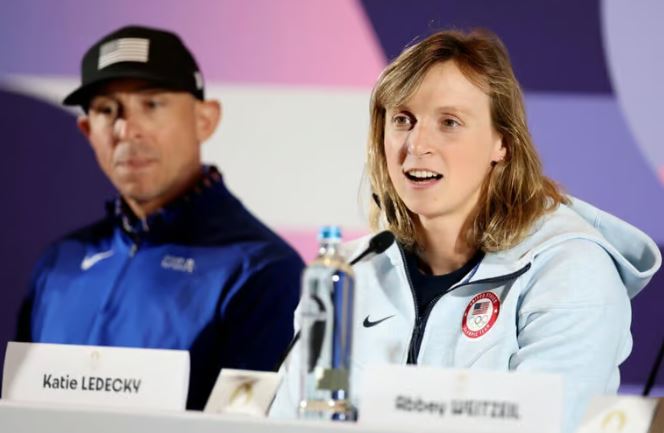On the eve of the Paris Games, seven-time Olympic gold medalist Katie Ledecky and fellow American swimmers expressed strong support for rigorous anti-doping measures, underscoring the need for fair and consistent application of rules worldwide. This statement comes in the wake of a recent doping scandal involving Chinese swimmers, raising concerns about the integrity of international competition.
In April, reports surfaced, including an investigation by The New York Times, revealing that 23 Chinese swimmers had tested positive for trimetazidine (TMZ), a banned heart medication known to enhance athletic performance by increasing blood flow. The tests were conducted seven months before the Tokyo Olympics in 2021, yet no athletes were penalized. Some of these swimmers went on to secure three gold medals in Tokyo. The World Anti-Doping Agency (WADA) accepted the Chinese authorities’ findings that the positive tests resulted from accidental ingestion through contaminated food at a hotel in Shijiazhuang, Hebei Province.
WADA’s decision to allow the swimmers to compete has drawn significant criticism, particularly from the United States Anti-Doping Agency (USADA). The controversy has become a sensitive issue, further highlighted during the International Olympic Committee (IOC) meeting where Salt Lake City was confirmed as the host for the 2034 Winter Olympic Games. The IOC expressed displeasure over a U.S. federal investigation into the Chinese doping allegations, insisting that U.S. officials lobby to end the investigation and amend the anti-conspiracy law facilitating the probe. This stipulation was made a condition before the formal vote awarding the Games to Salt Lake City, which passed with an 83-6 majority.
Amid this backdrop, Ledecky and other U.S. swimmers voiced their concerns and aspirations for a clean competition. At a pre-meet press conference, Ledecky emphasized the importance of fairness, not only during the Paris Games but also throughout the training periods leading up to them.
Ledecky’s remarks reflect a broader sentiment among athletes for greater accountability and transparency in anti-doping measures. U.S. breaststroker Nic Fink echoed these sentiments, expressing his hope that all competitors at the upcoming Games are competing fairly and without the use of banned substances.
The U.S. swimming team’s leadership also took a strong stance on the issue. U.S. head men’s coach Anthony Nesty, along with head women’s coach Todd DeSorbo, emphasized the importance of clean sport and their commitment to advocating for transparency in testing processes.
The controversy over the Chinese swimmers’ doping case highlights the challenges facing international sports organizations like WADA and the IOC in maintaining fair play. The American swimmers’ call for consistent and transparent enforcement of anti-doping rules underscores the need for global standards and accountability to ensure a level playing field. As the Paris Games approach, the issue remains a significant concern, with athletes and officials alike watching closely to ensure that all competitors adhere to the highest standards of integrity and fairness.

